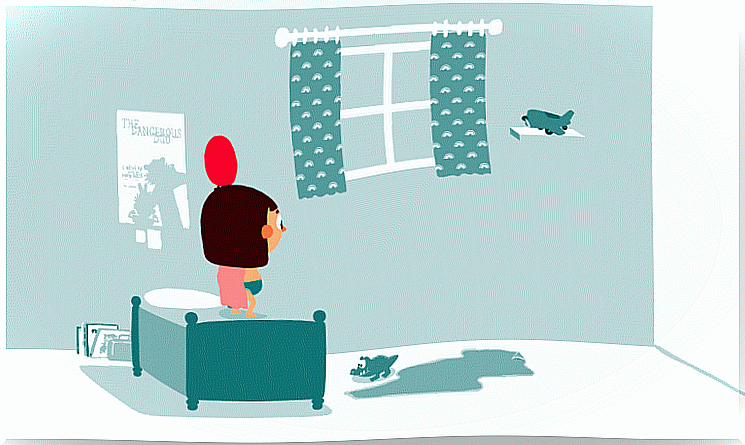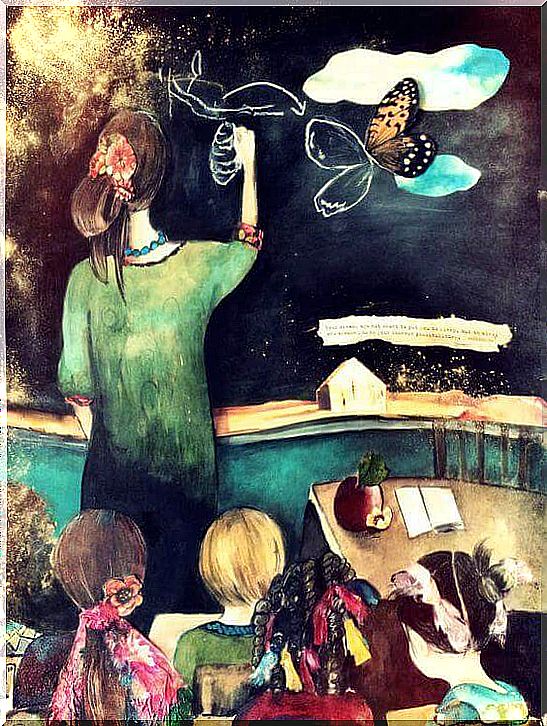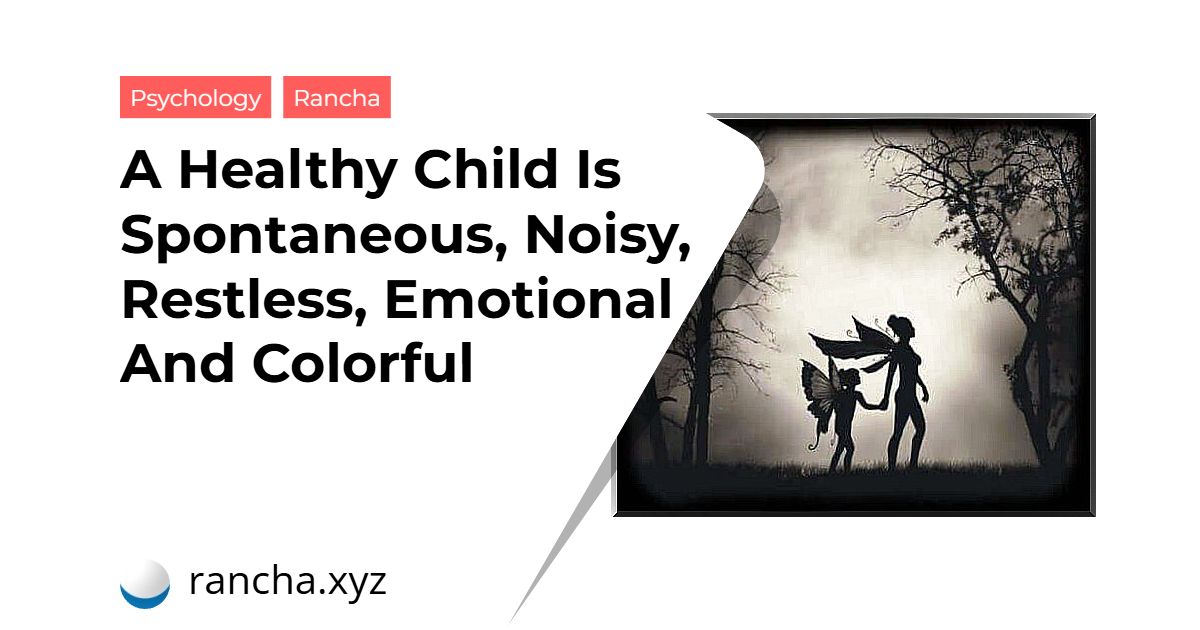A child is not born to be sitting, watching television or playing with a tablet. A child doesn’t want to be silent all the time.
They need to move, explore, find new things, create adventures and discover the world around them. They are learning, they are sponges, born pranksters, treasure hunters, potential earthquakes.
They are free, pure souls who try to fly, not be cornered, tied up or in handcuffs. Let us not make them slaves of adult life, of the haste and lack of imagination of the elders.
Let’s not rush them into our world of disenchantment, let’s enhance their ability to be surprised. We need to ensure that they have an emotional, social and cognitive life rich in content, flower scents, sensory expression, joy and knowledge.

What goes on in a child’s brain when they play?
Play has benefits for children at all levels (physiological-emotional, behavioral and cognitive) that are not new. In fact, we can speak of several interrelated repercussions that it offers:
- Regulates your mood and your anxiety.
- Favors attention, learning and memory.
- It reduces the tension of neurons, favoring tranquility, well-being and happiness.
- It magnifies their physical motivation, and thanks to this their muscles react, motivating them to play.
All of this favors an optimal state for imagination and creativity, helping them to enjoy the fantasy that surrounds them.
Society has been feeding hyperpaternality, that is, parents’ obsession for their children to achieve specific skills that guarantee a good profession in the future. And as society and educators, we forget that children are not valued according to their grades, and that by not slowing down our efforts to prioritize results, we are neglecting life skills.

Simplify the child’s childhood, educate well
The expression “each person is unique” is something we often say but which we still have little internalized. This is seen in a simple fact: we establish a series of rules to educate all our children.
This is really a very widespread error and it is not at all consistent with what we believe (that each person is unique). Therefore, it is not surprising that the confluence of our values and our attitudes are in conflict in creation.
On the other hand, as stated by Kim Payne, American teacher and advisor, we are raising our children in the excess of exactly four pillars:
- Too much information.
- Too many things.
- Too many options.
- Too much speed.
We are preventing them from exploring, reflecting, or letting go of the tensions that exist in everyday life. We are stuffing them with technology, toys and school and extracurricular activities, we are distorting childhood, and what is worse, we are preventing them from playing and developing.
Children currently spend less time outdoors than people in prisons. Why? Because we keep them “entertained and occupied” in other activities that we find most necessary, making sure they stay clean and don’t get dirty with clay. This is unacceptable and, above all, extremely worrying. Let’s look at some reasons why we need to change this…
- Excessive hygiene increases the possibility that children will develop allergies, as demonstrated by research from the Gothenburg hospital in Sweden.
- Not allowing them to play outdoors is a torture that stifles their creative and developmental potential.
- Keeping them glued to the screen of a cell phone, tablet, computer or television is tremendously harmful on a physiological, emotional, cognitive and behavioral level.

We could go on, but really, at this point, I believe most of us have found countless reasons that we are destroying childhood magic. As educator Francesco Tonucci says:
This, without a doubt, is a much healthier way of working with them, educating them and ensuring their success. If at some point we forget, we should be very aware of the following: “ If a child doesn’t need to get into the bathtub urgently, it’s because they didn’t play enough” . This is the fundamental premise of a good education.
 rancha.xyz Be free to choose their own route to self-knowledge, health and balance of body and soul.
rancha.xyz Be free to choose their own route to self-knowledge, health and balance of body and soul.




